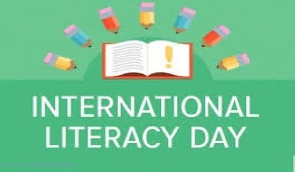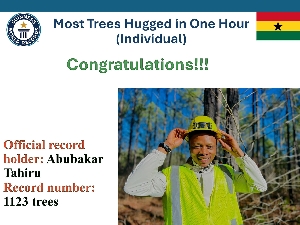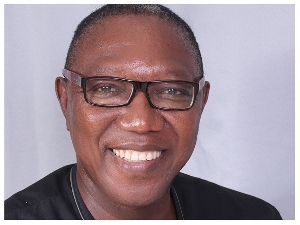 This year's theme is on Child Literacy as a Foundation for Future Development
This year's theme is on Child Literacy as a Foundation for Future Development
The Ghana Publishers Association (GPA) with its stakeholders, is set to celebrate the “World Literacy Day” tomorrow Tuesday September 8, 2020.
As part of the celebration, it will review programmes and efforts of various institutions and organisations at enhancing the country’s literacy rate.
It would also bring to the fore, the importance of literacy to individuals, communities and nations.
The celebration would be on the theme, “Child Literacy as a Foundation for Future Development: Strategies in the COVID-19 Crisis and beyond.”
A statement signed by Mr Asare Konadu Yamoah, the President of the GPA and copied to the Ghana News Agency, said literacy continued to be a challenge in Africa as the continent was witnessing a declining quality of its education and culture.
UNESCO (2019) studies revealed that “despite progress made, literacy challenges persist with at least 773 million adults worldwide lacking basic literacy skills today.
“According to the 2018 World Development Report, nearly 80 per cent of Ghana’s working-age population have just level one (1) literacy or below. That is, their literacy proficiency is limited to understanding basic texts, but they are not able to integrate, evaluate, or interpret information from a variety of text materials,” the statement said.
This and many researches, it said, did not reveal satisfactory results on Ghanaian literacy.
Reading over the years, the GPA believed, had offered people the incentives of mental and analytical development.
The statement said the old definition of literacy where the mere ability to read and write was the qualification for being literate was no more, as literacy was now the embodiment of human dignity and right.
“The ability to transform your environment to suit your lifestyle and contribute to the progress of society is the new definition,” it added.
It suggested that the nation’s educational policies and directions be couched to ensure that the population was enlightened to improve their lives and status after formal education.
“Reading is an exciting adventure. It is a journey of openness and empowerment. When you can read, you feel empowered and emboldened through life. You have control of your thoughts and could blend different cultures and situations for change in your life.”
The statement said it was therefore; appropriate to consider literacy as a strategy for development and acceleration of human initiatives and creativity.
“More attention should be focused on the development of the child to enable them to acquire the skills of writing, reading and analytical skills development at an early age,” it advised.
The current social challenges of filth, ignorance, intolerance etc, are all products of an illiterate society, the statement said, adding that the nation had not been able to transform its people into the desired citizens that education had envisaged.
“This is all because we have left reading and literacy out of the various education reforms so far.
“Literate citizenry has been elusive. Literacy is the lock that opens our potential to self-enhancement and national development.
Literacy enables one to transform his or her situation and society with the knowledge gained.”
The statement called on the government to review the mandate of the Non-Formal Education Division to accommodate the current global situation with respect to literacy.
It also suggested that government considered a comprehensive sensitisation programme for all ministries and departments to promote literacy through their activities.
The statement also admonished parents and educational authorities to make reading materials available for children to access.
After the Second World War, it became evident, the urgency to accelerate literacy across the globe. A global strategy was therefore needed to approach the challenge.
This brought about the launch of the World Literacy Day in 1965 by the United Nations Educational Scientific and Cultural Organisation (UNESCO).
The first global celebration was in 1966 and since then, has been an annual celebration.
- Meet the only teacher taking care of an entire school in Afram Plains
- U.S. provides GH¢2.8 Million to aid licensing, monitoring and evaluation of schools
- Each One, Teach One: ADN kicks off Lifeline Literacy Project
- Parenting with a difference 101: Cheating in classwork a threat to national development
- GH¢68.5m for WASSCE passco - Minority wants OSP to probe expenditure
- Read all related articles












